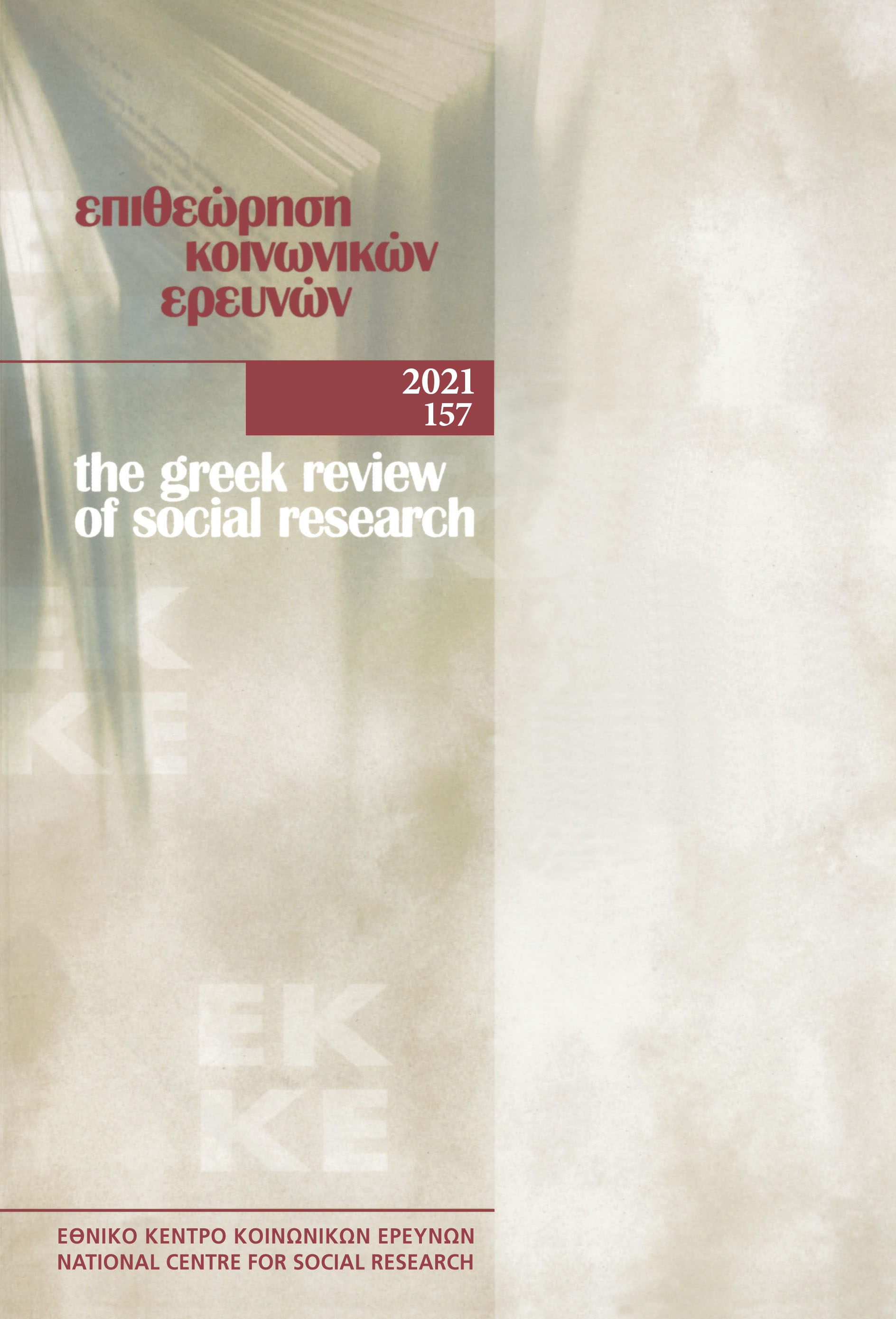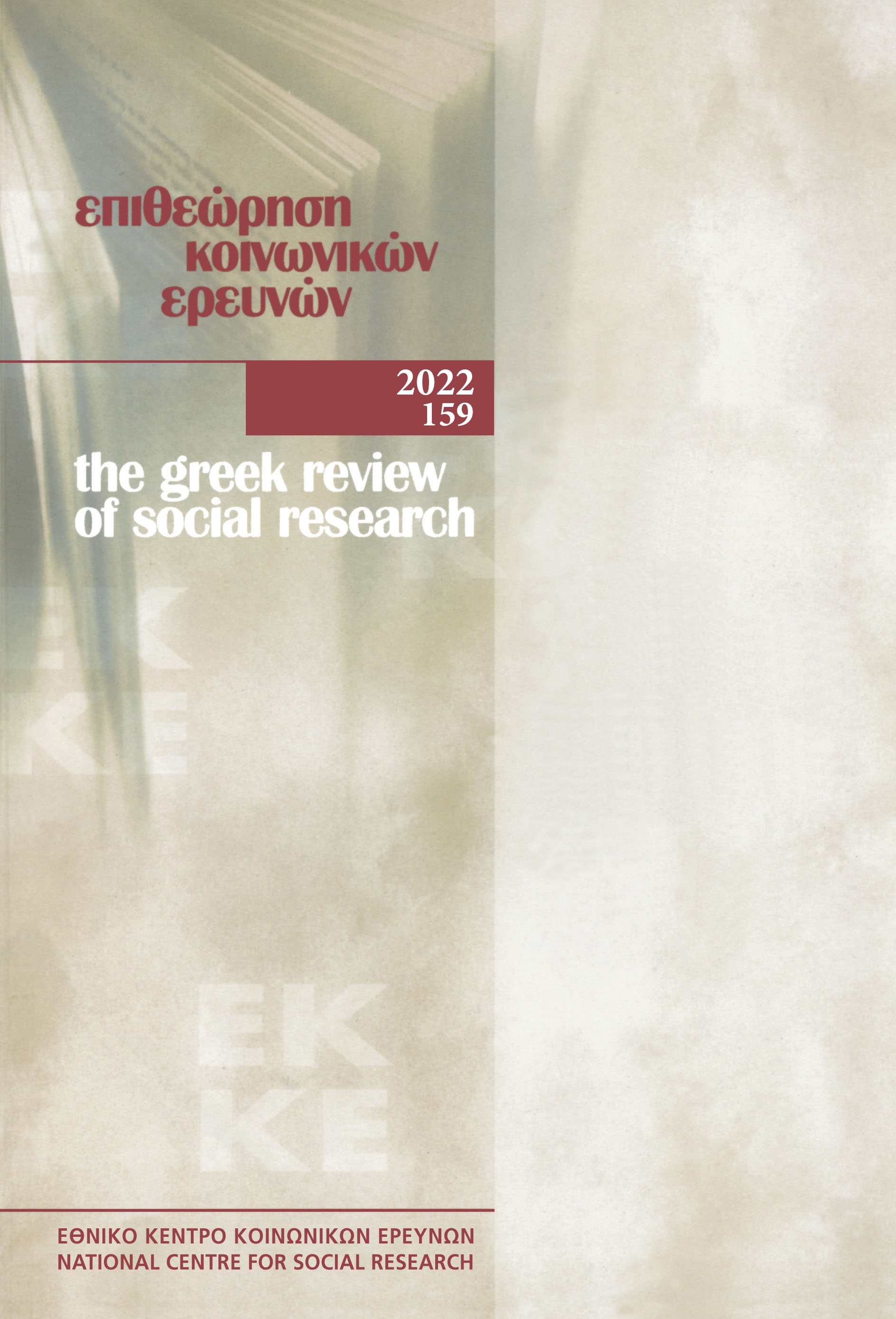Ticket to Brussels. One-way or Return? Profiles and typology of Greek MEPs, 1981-2019

Περίληψη
Στο άρθρο αναλύονται κοινωνικό-δημογραφικά χαρακτηριστικά των Ελλήνων/Ελληνίδων ευρωβουλευτών που εξελέγησαν στο Ευρωπαϊκό Κοινοβούλιο στις εννέα εκλογικές αναμετρήσεις από το 1981 έως το 2019. Εξετάζεται εάν μετά το 2014, όταν άλλαξε η μέθοδος επιλογής των υποψηφίων με την εισαγωγή του σταυρού προτίμησης, τα δημογραφικά χαρακτηριστικά των εκλεγμένων και το κοινωνικό και πολιτικό τους κεφαλαίο διαφέρουν σε σχέση με αυτά των ευρωβουλευτών/τριών που είχαν εκλεγεί τα προηγούμενα χρόνια. Εξετάζεται, επίσης, η σχέση ανάμεσα στο Εθνικό και το Ευρωπαϊκό Κοινοβούλιο και, ειδικότερα, α) σε ποιο βαθμό το Ευρωπαϊκό Κοινοβούλιο λειτουργεί ως σημείο εκκίνησης για την πολιτική σταδιοδρομία των ευρωβουλευτών/τριών στην εθνική πολιτική σκηνή, β) εάν χρησιμεύει ως πεδίο για την εμφάνιση "υπερεθνικών ελίτ" με διακριτά χαρακτηριστικά από εκείνα των εγχώριων ελίτ ή γ) εάν είναι μια μορφή πολιτικής αποστρατείας για τις εθνικές ελίτ. Με βάση τα διαθέσιμα δεδομένα, προτείνεται μια τυπολογία της καριέρας προς το/στο Ευρωκοινοβούλιο και αναλύονται τα ιδιαίτερα χαρακτηριστικά κάθε επιμέρους τύπου.
Λεπτομέρειες άρθρου
- Πώς να δημιουργήσετε Αναφορές
-
Kakepaki, M., & Karayiannis, Y. (2021). Ticket to Brussels. One-way or Return? Profiles and typology of Greek MEPs, 1981-2019. Επιθεώρηση Κοινωνικών Ερευνών, 157, 157–181. https://doi.org/10.12681/grsr.27621
- Τεύχος
- 2021: 157
- Ενότητα
- Άρθρα

Αυτή η εργασία είναι αδειοδοτημένη υπό το CC Αναφορά Δημιουργού – Μη Εμπορική Χρήση 4.0.
Οι συγγραφείς των άρθρων που δημοσιεύονται στην Επιθεώρηση Κοινωνικών Ερευνών διατηρούν τα δικαιώματα πνευματικής ιδιοκτησίας επί των άρθρων τους, δίνοντας στο περιοδικό το δικαίωμα της πρώτης δημοσίευσης. Άρθρα που δημοσιεύονται στην Επιθεώρηση Κοινωνικών Ερευνών διατίθενται με άδεια Creative Commons 4.0 και σύμφωνα με την άδεια μπορούν να χρησιμοποιούνται ελεύθερα, με αναφορά στο/στη συγγραφέα και στην πρώτη δημοσίευση για μη κερδοσκοπικούς σκοπούς.
Το Εθνικό Κέντρο Κοινωνικών Ερευνών διατηρεί το δικαίωμα να δημοσιεύει, να αναπαραγάγει, να παρουσιάζει στο κοινό, να διανέμει και χρησιμοποιεί άρθρα που δημοσιεύονται στην Επιθεώρηση Κοινωνικών Ερευνών σε οποιοδήποτε μέσο και μορφή είτε μεμονωμένα είτε ως μέρη συλλογικών έργων, για όλο τον χρόνο διάρκειας προστασίας της πνευματικής ιδιοκτησίας και για όλες τις χώρες του κόσμου. Αυτό περιλαμβάνει ενδεικτικά και όχι αποκλειστικά το δικαίωμα δημοσίευσης των άρθρων σε τεύχη της Επιθεώρησης Κοινωνικών Ερευνών, αναπαραγωγής και διανομής μεμονωμένων αντιγράφων των άρθρων, αναπαραγωγής ολόκληρων των άρθρων σε άλλη έκδοση του Εθνικού Κέντρου Κοινωνικών Ερευνών, καθώς και αναπαραγωγής και διανομής των άρθρων ή περίληψης αυτών με χρήση πληροφορικού συστήματος αποθετηρίου.



